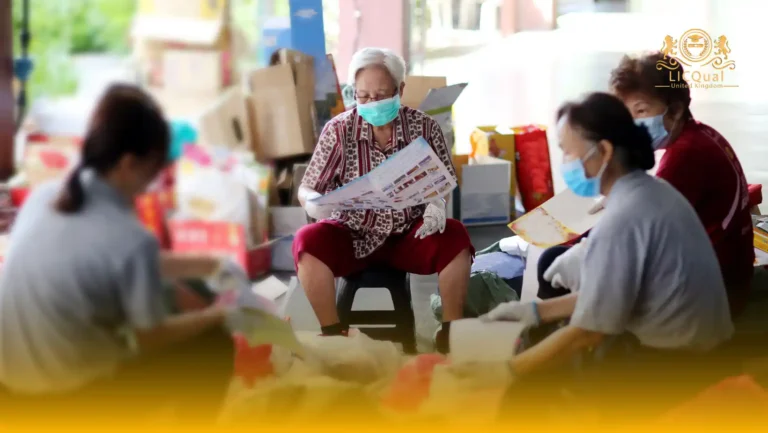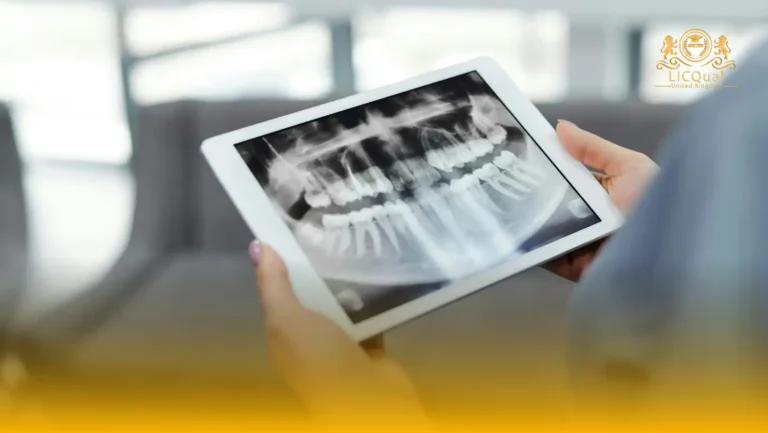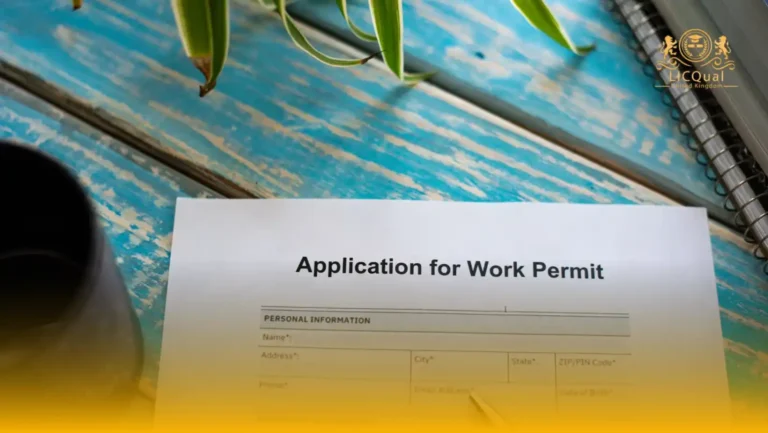The LICQual Level 3 Diploma in Pharmacy in Developing Countries (Dip Pharmacy in Developing Countries) is a specialized qualification designed to equip learners with essential knowledge and practical skills to address the unique challenges faced in pharmacy practice across developing nations. This programme highlights the critical role of pharmacists and healthcare professionals in improving access to medicines, strengthening healthcare systems, and promoting safe and effective pharmaceutical services in resource-limited settings.
Learners will explore key areas such as access to essential medicines, supply chain management, rational drug use, healthcare policy, and the integration of pharmacy services within public health initiatives. By understanding the barriers and opportunities in developing countries, learners will gain the tools to contribute to sustainable healthcare solutions and enhance patient outcomes.
This diploma is aimed at professionals seeking to expand their career prospects, increase their expertise, and engage in Continuing Professional Development (CPD). It prepares learners for roles in pharmacy practice, healthcare management, non-governmental organisations (NGOs), research, and international health development.
Centres offering this qualification must ensure delivery through qualified and experienced staff, alongside providing access to updated study materials, case studies, and practical resources. High-quality training and learner support are essential to ensure knowledge is applied effectively in real-world contexts.
The LICQual Level 3 Diploma in Pharmacy in Developing Countries is therefore an excellent pathway for learners who aspire to contribute to global health improvements, strengthen pharmacy practice, and make a meaningful difference in communities worldwide.
Course Overview
Qualification Title
LICQual Level 3 Diploma in Pharmacy in Developing Countries (Dip Pharmacy in Developing Countries)
Total Units
6
Total Credits
60
GLH
240
Qualification #
LICQ2201189
Qualification Specification
To enroll in the LICQual Level 3 Diploma in Pharmacy in Developing Countries (Dip Pharmacy in Developing Countries), applicants must meet the following criteria:
|
Qualification# |
Unit Title |
Credits |
GLH |
|---|---|---|---|
|
LICQ2201189-1 |
Global Health and the Role of Pharmacy in Developing Countries |
10 |
40 |
|
LICQ2201189-2 |
Access to Essential Medicines and Supply Chain Management |
10 |
40 |
|
LICQ2201189-3 |
Rational Use of Medicines and Public Health |
10 |
40 |
|
LICQ2201189-4 |
Pharmacy Systems, Policy, and Governance |
10 |
40 |
|
LICQ2201189-5 |
Innovations and Technology in Pharmacy for Developing Nations |
10 |
40 |
|
LICQ2201189-6 |
Research, Professional Development, and Global Pharmacy Practice |
10 |
40 |
By the end of this course, learners will be able to:
Unit 1: Global Health and the Role of Pharmacy in Developing Countries
By the end of this unit, learners will be able to:
- Explain the key global health challenges affecting developing nations.
- Analyse the role of pharmacy in improving access to healthcare services.
- Evaluate the impact of socio-economic and cultural factors on pharmacy practice.
- Apply knowledge of global health frameworks to strengthen pharmacy services.
Unit 2: Access to Essential Medicines and Supply Chain Management
By the end of this unit, learners will be able to:
- Describe the principles of medicine procurement, storage, and distribution.
- Identify barriers to medicine accessibility in developing countries.
- Apply strategies to strengthen pharmaceutical supply chain systems.
- Evaluate policies and practices that improve equitable access to essential medicines.
Unit 3: Rational Use of Medicines and Public Health
By the end of this unit, learners will be able to:
- Explain the principles of rational medicine use and its impact on public health.
- Identify common issues of medicine misuse, overuse, and underuse.
- Apply public health approaches to promote responsible prescribing and dispensing.
- Evaluate the role of pharmacy in health promotion and disease prevention.
Unit 4: Pharmacy Systems, Policy, and Governance
By the end of this unit, learners will be able to:
- Describe pharmacy systems and structures in developing countries.
- Analyse national and international pharmacy policies affecting healthcare delivery.
- Evaluate the importance of governance, regulation, and ethical practice in pharmacy.
- Apply knowledge of policy frameworks to strengthen pharmacy governance.
Unit 5: Innovations and Technology in Pharmacy for Developing Nations
By the end of this unit, learners will be able to:
- Explain the role of innovation and technology in pharmacy practice.
- Analyse the benefits of digital health and low-cost technologies in developing nations.
- Apply innovative strategies to address challenges in medicine delivery and monitoring.
- Evaluate case studies where technology improved pharmacy services in resource-limited settings.
Unit 6: Research, Professional Development, and Global Pharmacy Practice
By the end of this unit, learners will be able to:
- Conduct small-scale research relevant to pharmacy in developing countries.
- Critically evaluate data and apply evidence-based approaches to pharmacy practice.
- Produce professional reports and presentations to communicate research findings.
- Reflect on personal growth and plan for Continuing Professional Development (CPD) in global pharmacy contexts.
The LICQual Level 3 Diploma in Pharmacy in Developing Countries (Dip Pharmacy in Developing Countries) is designed for professionals and students who want to strengthen their expertise in pharmacy practice within resource‑limited settings. This internationally accredited qualification is ideal for pharmacists, healthcare workers, policy makers, and academic trainers who aim to improve access to medicines and healthcare delivery in developing nations. With flexible online study and global recognition, it is perfect for anyone seeking career advancement, credibility, and practical skills in pharmacy and healthcare systems.
1. Practicing Pharmacists
- Gain advanced knowledge of pharmacy practice in developing countries
- Strengthen compliance with international healthcare standards and patient safety protocols
- Enhance credibility with an internationally recognized qualification
- Prepare for leadership roles in pharmacy and healthcare organizations
- Stay updated with evolving global pharmacy practices and healthcare policies
2. Pharmacy Students and Graduates
- Build a strong foundation in pharmacy practice before entering the workforce
- Improve employability with a Level 3 diploma UK recognized
- Learn practical applications of pharmacy in resource‑limited settings
- Gain confidence in applying pharmacy principles to diverse healthcare environments
- Add a career‑ready certification to your academic portfolio
3. Healthcare Professionals
- Understand pharmacy practice across diverse healthcare systems in developing countries
- Strengthen skills in evidence‑based prescribing and healthcare management
- Expand career opportunities with international accreditation
- Apply pharmacy principles in multidisciplinary healthcare teams
- Improve patient trust through safe and effective medicine delivery
4. Policy Makers and Healthcare Administrators
- Deepen expertise in pharmacy systems and healthcare policy for developing nations
- Strengthen oversight of ethical and professional healthcare practices
- Gain practical tools for monitoring and evaluating healthcare delivery
- Improve career advancement opportunities in healthcare administration
- Enhance credibility with a specialized diploma in pharmacy for developing countries
5. International Candidates
- Earn a globally recognized pharmacy qualification
- Access flexible online study from anywhere in the world
- Meet international accreditation standards for healthcare practice
- Strengthen career prospects in diverse healthcare and pharmaceutical markets
- Gain cross‑border knowledge of pharmacy practice in developing countries
6. Academic and Training Professionals
- Use the diploma to enrich teaching and training programs
- Gain structured knowledge of pharmacy in developing countries for curriculum design
- Strengthen EEAT compliance in educational content delivery
- Provide students with internationally accredited learning pathways
- Enhance professional standing in academic and healthcare education
7. Career Changers and Aspiring Professionals
- Transition into pharmacy or healthcare with a recognized qualification
- Gain essential knowledge of pharmacy practice in developing nations
- Build credibility in healthcare through accredited certification
- Learn practical skills for medicine distribution and evidence‑based practice
- Open doors to career opportunities in pharmacy, healthcare, and policy sectors
Centres delivering the LICQual Level 3 Diploma in Pharmacy in Developing Countries must adhere to specific standards to ensure high-quality training and learner success. These requirements guarantee that learners gain the knowledge, skills, and practical competencies needed to address pharmacy and healthcare challenges in developing countries.
- Qualified and experienced staff – Centres must employ trainers and assessors with relevant academic qualifications and professional experience in pharmacy, healthcare, or global health practice.
- Access to learning resources – Centres should provide learners with up-to-date study materials, case studies, research papers, and digital learning platforms.
- Facilities and technology – Adequate classrooms, online learning systems, and access to digital tools must be available to support effective teaching and practical learning.
- Robust quality assurance systems – Internal quality assurance procedures should be in place to ensure fairness, accuracy, and consistency in learner assessment.
- Compliance with international standards – Centres must align delivery with global education benchmarks and international pharmacy practice guidelines.
- Learner support and guidance – Academic support, mentoring, and career guidance should be provided to help learners achieve success and apply their knowledge in real-world contexts.
- Commitment to CPD – Centres must encourage learners and staff to engage in Continuing Professional Development (CPD) to maintain industry-relevant knowledge and skills.
- Inclusive and safe learning environment – Centres should foster equality, diversity, and a supportive atmosphere to ensure all learners can participate fully.
Assessment and Verification
All units within this qualification are subject to internal assessment by the approved centre and external verification by LICQual. The qualification follows a criterion-referenced assessment approach, ensuring that learners meet all specified learning outcomes.
To achieve a ‘Pass’ in any unit, learners must provide valid, sufficient, and authentic evidence demonstrating their attainment of all learning outcomes and compliance with the prescribed assessment criteria. The Assessor is responsible for evaluating the evidence and determining whether the learner has successfully met the required standards.
Assessors must maintain a clear and comprehensive audit trail, documenting the basis for their assessment decisions to ensure transparency, consistency, and compliance with quality assurance requirements.







